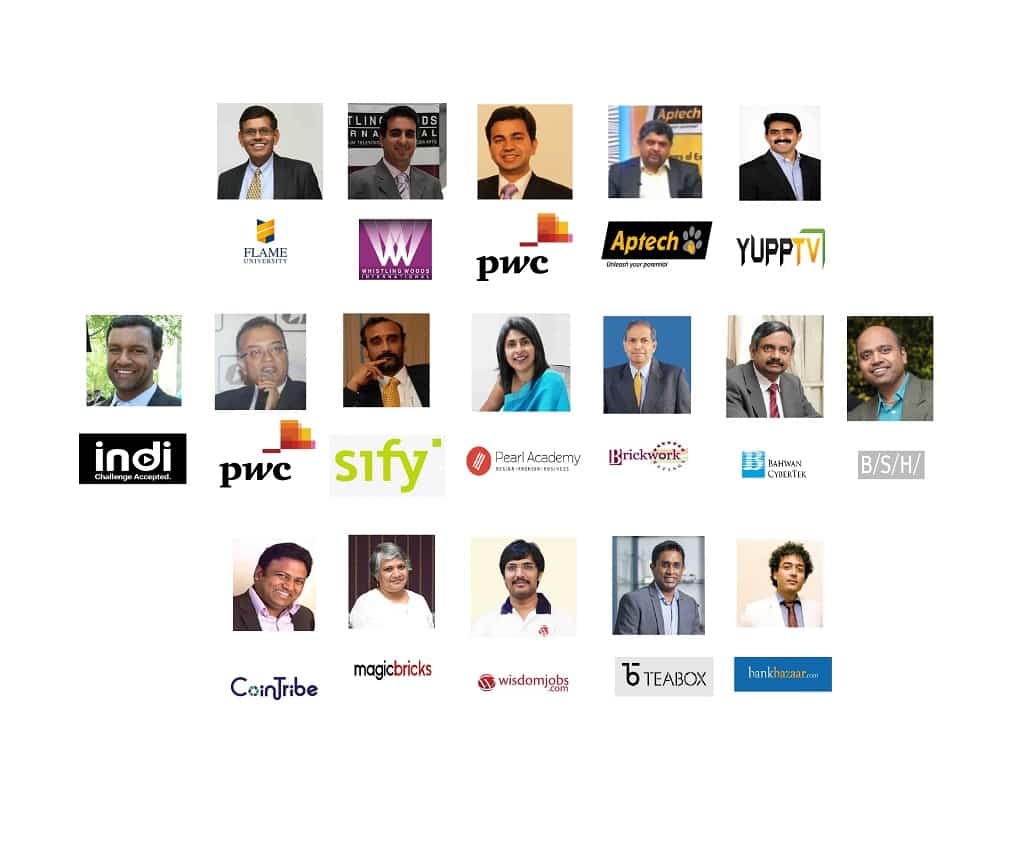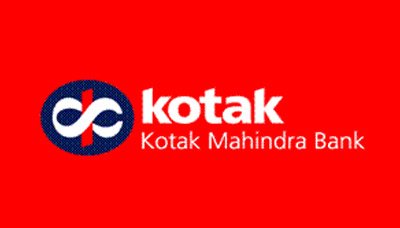The long awaited Union Budget 2017 announcement was made on February 1, 2017, by the Union of India Finance Minister, Shri Arun Jaitley. India Inc.’s business leaders gave their reactions to Team Estrade on this announcement. Following is the fourth and final, in series of these India Inc.’s reactions,
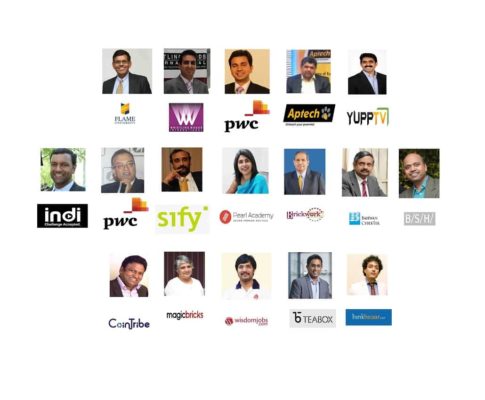
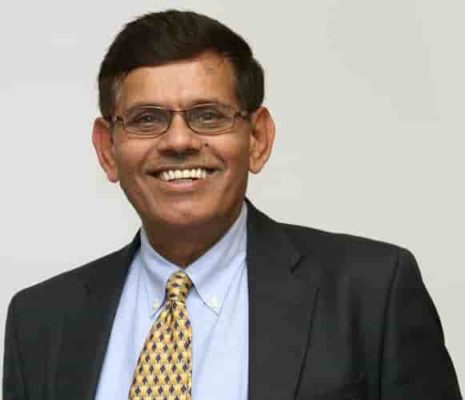
Dr. Devi Singh, Vice Chancellor, FLAME University
In the annual budget 2017-18 presented by the Finance Minister, Mr. Arun Jaitley, on February 01, 2017, education seems to have received a considerably closer attention than usual which is an acknowledgement of Government’s ongoing efforts at energizing the youth through education, skills and jobs. In order for quality education to lead to good quality jobs, the Government has attemptedto initiate necessary steps right through the educational continuum to enhance and maintain access, innovation, parity and quality- universally and equitably.
The University Grants Commission (UGC) has finally received the attention that has been long overdue in terms of far reaching reforms in its structure, mandate and autonomy as an effective Higher Education regulator in the country.
Another remarkable step is the creation of a national testing agency as an autonomous and self-sustained premier testing organization to conduct entrance examinations for higher institutions. This, consequently, will free the nodal education bodies from the tedious and draggy administrative responsibilities and allow them to focus more on professional, quality and regulatory objectives and outcomes.
The hike of 9.9% in outlay to the Education sector for the financial year 2017-18 will notably help to accommodate and, bring to meaningful fruition, various ambitious plans of the government including the creation of new institutions of national importance and higher learning.
In what seems to be a highly progressive and novel idea is in the form of SWAYAM– a platform with 350 online courses which will not only enable students to virtually attend the courses taught by the best faculty, but will also give them access to world class learning resources and opportunities for academic interaction.
Vocationalization of education has received further fillip in the form of SANKALP-Skill Acquisition and Knowledge Awareness for Livelihood Promotion program- with an outlay of 4000 crores aimed at providing market-relevant training to 3.5 crore youth. This will work intandem with STRIVE– Skill Strengthening for Industrial Value Enhancement aimed at making ITIs more relevant to the skills requirements of the industrial and apprenticeship markets.
Finally, in an attempt to identify good quality institutions with international best practices in education sector, a revised framework will be put in place for outcome-based accreditations and credit-based programs. Institutions so identified are likely to enjoy greater administrative and academic autonomy to work towards enhancing their standing as institutions promoting innovation, creativity and world-class curriculum.
It is hoped that the above well-meaning and long overdue initiatives will receive adequate financial and administrative support from the government. If implemented sincerely it could provide the nation the terrific tandem of inspired goals of individual institutions and government’s vision of world class education.
he FM also mentioned that the government would look at more PPP models in education which is definitely a welcome move but again, we would need to see the specific implementation.A hiked allocation toward women’s skill development is a good sign as is the continuing emphasis on skilling India via the skills ministry.As I said earlier, some good idea but very much still wait and watch for the education industry.
“Proposal to develop new airports in Tier 2 locations is a welcome move” – Mohammad Saif Athar, Director – Capital Projects & Infrastructure – PwC on ‘Make In India’.

Mohammad Saif Athar, Director – Capital Projects & Infrastructure – PwC on ‘Make In India’.
Skill Development: – Industry value enhancement, National technical agency, vocational training and apprentice program will support FDI, and mitigate issues related to quality work force availability. Focus needs to be on implementation of these schemes.
Productivity enhancement: Continuing with a focus on improving business operations and productivity of workforce in labour intensive sectors, Government’s proposed scheme for Leather and Footwear sector will enable Indian manufacturing to re-inforce its export leadership in this sector and also enable them to move into value added segments and fashion labels
Enabling integrated supply chains and reducing logistics cost: Railways plans of working along with Logistics firms to provided door-door connectivity will bring efficiency in the supply chain by reducing logistics costs and reducing time to reach end markets or supply sources. This will be extremely critical for perishable food items and manufactured products. Also, the investment of Rs. 2000 crore for coastal connectivity road sector projects will provide seamless multi-modal connectivity and augur well with port lead manufacturing plan. Governments plan to focus on proposing a multi-modal logistics plan will enable manufacturing in Indian
Tourism as an enabler for Economic Development: 5 tourism mega economic zones will enable bring global tourism players in India and also drive tourism sectors contribution to GDP. Linking Tourism locations with dedicated Tourist trains will enable footfalls and viability of tourism projects.
Connectivity focus to Tier-2 locations will drive manufacturing to new locations: Proposal to develop new airports in Tier 2 locations is a welcome move for investors looking for enablers to manufacturing locations. Also, it will diffuse the pressure for Industrial land parcels in the periphery of metros and large cities in India
Specific focus on successful Electronics Manufacturing Policy: New allocation of Rs. 745 crore will support approval of pending proposals seeking incentives under the EMC and M-SIPS program.
“strengthening the morale of the MSME sector will have a strong trickle-down effect on other sectors” – Anil Pant, CEO and MD, Aptech Ltd.
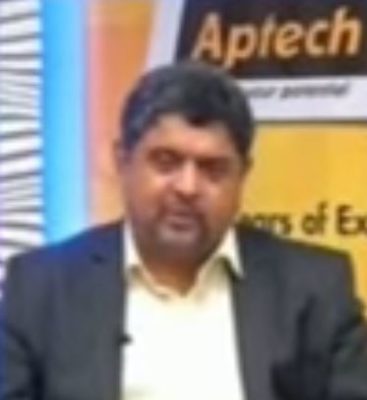
Anil Pant, CEO and MD, Aptech Ltd.
The Union Budget this year has a lot of encouraging sops for the education and vocational training (skilling) sector. Right at the onset, the emphasis by the Finance Minister on energising youth set the tone of the budget. In addition to the proposed amendments to the tax slabs, the key thrust on improving the skill efficiency of the country is a pragmatic move.
The budget allocation of Rs.2200 crore under the Skill Strengthening for Industrial Value Enhancement (STRIVE) in the next financial year 2017-18 with a focus on improving the quality and market relevance of vocational training and strengthening the apprenticeship programmes through industry cluster approach is heartening. The decision to set up 100 international skill centres to help youth with job opportunities is a welcome move. Similarly, the reforms in UGC for higher education and the proposed innovation fund for secondary education will provide the much needed boost for the future generations to become employment creators. Also, setting up of a centralised national testing agency is an approach in the right direction. The proposal introduce a system of measuring annual learning outcome in our schools is music to many ears. Moreover, the emphasis on science education and flexibility through local innovative content in curriculum will promote creativity among the future generation.
The focus on strengthening the morale of the MSME sector will have a strong trickle-down effect on other sectors as well since it forms a major share of the economic activity of the country. Over and above, Rs. 500 crore allocated for setting up of Mahila Shakti Kendra and the proposed alterations to the Model Shops and Establishment Bill will open-up additional opportunities for employment of women. India is an important tourist destination and the sector is also a strong contributor to the foreign exchange. Thus, the decision to set up five special tourism zones, anchored on SPV as well as the launch of the Incredible India II campaign will provide a strong stimulus to the skilling industry since it would require support of skilled workforce.
The government has also ensured that its Digital India initiative has enough offerings in this year’s budget. The investment on BharatNet project and DigiGaon is an encouraging step towards making the nation more inclusive and transparent. It would have been great if the FM would have spoken about the New Education Policy, Teachers training and announced measures for easy education loans.
The new education policy is expected to be inclusive of pedagogical reforms. SWAYAM or Study Webs of Active – Learning for Young Aspiring Minds— government’s largest ever MOOC received only a passing mention. The HRD Ministry’s recent web portal launch of ‘ShaGun’ (as part of Sarva Shiksha Abhiyan) is an encouraging step in the direction of data-driven monitoring of the performance of state education boards. However, wide disparities in students’ achievement of basic skills across states, which was also affirmed by the National Achievement Survey, calls for a closer scrutiny of the teachers training programme. Training the trainers is equally an important task for the government to bridge the disparity in skill levels across the nation.
Another much-awaited move was the decision to set-up a centralised academic records repository to cut down on the fake certifications – which is due this year. In the budget this year, we expected the government to apprise the citizens on the status of the program. It would have been better if the government would have announced more statutory powers for National Board for Skills Assessment and Certification (NBSAC) and bring all certificates from ITIs and vocational training institutes under the purview of the programme.
Nevertheless, it is a skill focused budget aimed at providing a fillip to employment generation and skill development.

Uday Reddy- CEO & Founder, YuppTV
It looks like a satisfying union budget 2017. As one of the leading OTT players, we appreciate the decision by the government to spread and strengthen the digital infrastructure in rural India. This includes the allocation of Rs 10,000 crore to Bharat Net, which is going to lay out 1,55,000 km of Optic Fiber. The same is also going to connect over 150,000 gram panchayats with high speed Wi-Fi hotspots. The same provisions are going to enhance digital access, whilst roping in newer users for consuming digital content,”
YuppTV, a pioneer and one of the World’s largest online Over-the-top (OTT) entertainment solutions provider has made the consumer witness the renaissance in TV watching experience. Making the best use of technology growth and advancement, YuppTV enables its consumers to experience the convenience of virtual home entertainment anytime, anywhere.
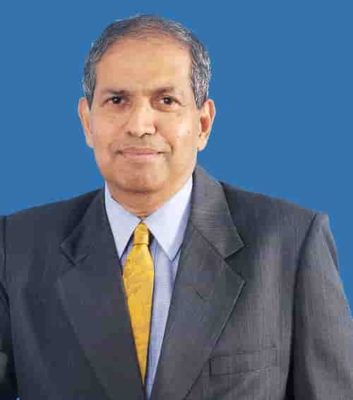
Vivek Kulkarni- MD, Brickwork Ratings
Budget 2017 began by showcasing India as an engine of global growth with major emphasis laid on rural development this year. With a targeted fiscal deficit at a feasible 3.2% of GDP, the economy is definitely on a growing curve. For investment sector budget has promised further liberation on of Foreign Direct Investment (FDI) policy, which is a positive move. Abolishment of FIPB is also in favour of direct investments.

Adhil Shetty, CEO & Co- founder, BankBazaar
The budget reiterates that the road to financial inclusion is through digital finance. As a Fintech company, this attitude is very encouraging to BankBazaar as well as the Fintech industry as a whole.
From our perspective, the budget has two highlights: the push on infrastructure and the cap on cash transactions. On one hand, we have the Bharat Net project to bring high-speed broadband to gram panchayats to enable higher connectivity and access to banking services, and POS and Aadhar-based POS especially in rural areas to facilitate digital payments. On the other hand, we have a cap on cash transactions above Rs.3L. There is also a Computer ERT for cyber security being planned. All these measures will enable a culture of digital finance and provide the required support and confidence to people to enter the formal banking system in the country and transact digitally.
Even from the perspective of our customers, the budget brings more affordable housing coupled with subsidized loans, relaxed tax brackets, better benefits to senior citizens and pensioners. So, with these schemes, we foresee a significantly higher inclusion of lower income group within the banking system.

Divyansh Bajpai- Co-Founder Indi.com India
“The Union Budget 2017 lives up to our expectations, since it brings about institutional changes warranted for the evolution of a nascent digital economy. To begin with, allocating INR 10,000 crore to Bharat Net is an impressive step in the direction of digitalization. This is going to democratize digital access to over 150,000 gram panchayats, while also improving the Fiber Optic network. Besides, the GST bill and allocations of INR 745 Cr to policies like MSIPS and EDF will further reduce the cost of owning a smartphone, hence making it easier for users from tier 2, 3 and 4 cities and towns to transition online. Lastly, investments in cyber security along with setting up CERT will immunize users from cyber-attacks and hacks. In conclusion, we really appreciate the announcements and feel inspired to further innovate and channel our efforts in taking the digital wave forward”

Rohit Lohia – COO & CO-Founder, CoinTribe
“While the budget lacks big bang announcement (or SOPs), there are several subtle indicators of progressiveness in the budget. 24% increase in CapEx, Growth in road construction rate, 36% increase in FDI flow, Decline in CAD to 0.3%, Focus on increasing agri income rather than just granting subsidies are all indicators of long term planning. The allocation of 10,000 Cr. for Bharat Net project, liberalization of FDI policy, abolishing of FIPB indicate a continued emphasis on fuelling digitization and start-up ecosystem. Re-capitalization of PSU banks and increase in Mudhra targets continue the emphasis on Small business lending which forms an important pillar of Indian Economy and employment. On the other hand, duty exemption on POS and fingerprint/ IRIS scanners, reduction of tax rate for small businesses to 25%, limit on cash transactions to 3 lakhs along with GST implementation will go a long way in creating transparency in the small business operations making them more lendable. It checks several boxes on what we would have looked forward to as an Online Lending Marketplace.”
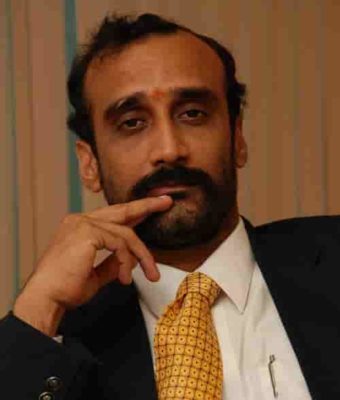
M P Vijay Kumar, CFO, Sify Technologies
- Budget is on expected lines; of course on tax, the details are yet to be assessed
- Fiscal deficit target of 3.2% is a healthy commitment, considering expansionary climate
- Reduction of tax to businesses entities less than Rs.50cr turnover to 25% is a good step.
- Encouraging digital- reduction of presumptive tax rate to 6% in order to encourage digital mode is a exceedingly good step; good innovation and a 25% reduction is very good. Similarly, concept of electoral bonds is very good and forward looking.
- While the reduction of tax rate to below Rs.5lacs tax is welcome, a surcharge on individuals with income between Rs.50lacs to Rs.1cr was avoidable.
- Overall, focus has been more on initiatives which will yield results in long run and less of tactical- healthy trend.
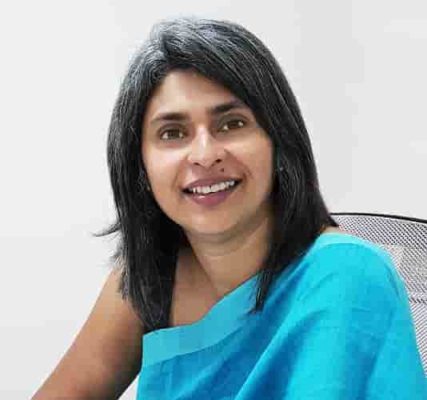
Nandita Abraham, CEO, Pearl Academy
“This was one of the most anticipated Budgets, specially post the demonetization drive and I am happy that it has some game-changing announcements for the education sector such as providing autonomy to higher education and the introduction of virtual courses on the digital platform – Swayam. It is also heartening to see a bevy of strategic initiatives such as boosting skill education through skill centers etc. which will go a long way in realizing our dream of seeing India as the ‘Skilled Capital of the World’. I am also hoping that this will serve as a goalpost for all educators to work towards transforming our students into skilled professionals through the right mix of academic rigor, technical skills and most importantly – vital life skills such as decision – making, negotiation, leadership etc.”
“This is a pro-industry budget, and the scope for technology companies for automation initiatives has vastly widened because of this” – S. Durgaprasad, Co-Founder, Director & CEO – Bahwan CyberTek
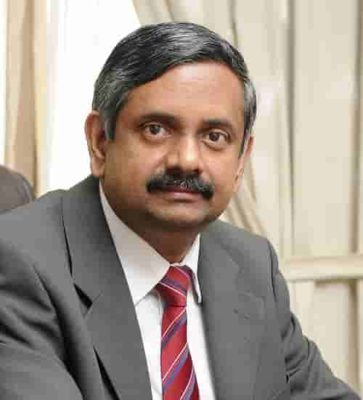
S. Durgaprasad, Co-Founder, Director & CEO – Bahwan CyberTek
The Union Budget for 2017-18 has a number of steps that are paving the way in making India a digital economy. With the first step of demonetization taken towards this promise, the budget has further highlighted steps in this direction; for example, Aadhar Pay, is a mandate to digitize all Government receipts and the restriction of cash transactions up to Rs. 3 lacs. This calls for robust technology players in the payments space that can help enable such an environment, in collaboration with the Government.
An interesting point to note here is that the budget has been presented with a fiscal deficit of 3.2%, which is expected, given the current global market scenario. Firstly, it is likely that there will be higher capital outflow from emerging economies like India, since the US Federal Reserve’s intention is to increase policy rates this year; secondly, the uncertainty around commodity prices – especially that of crude oil – is bound to have implications on the fiscal situation of emerging economics; finally, there are signs of withdrawal from the globalization of goods, services and people, as the pressure of protection on the global economy is unsurmountable.
Moreover, some key decisions taken by the Government will work in the favor of IT organizations. For instance, the abolishment of the Foreign Investment Promotion Board and further liberalization of the FDI policy are under consideration – this definitely means further investments in India.
What is definitely reassuring is the amount of measures taken to stimulate growth – Income Tax for companies falling under the MSME category with a turnover of up to 50 crore has been reduced to 25% and the MAT credit carry forward has been increased to 15 years versus 10 years.
Overall, this union budget is people friendly; with widened tax net for corporates and industries, and budget deficit control of 3.2%, this is a pro-industry budget, and the scope for technology companies for automation initiatives has vastly widened because of this.

Gunjan Srivastava, MD &CEO – BSH Household Appliances
“The Union Budget 2017 presented yesterday, announced a host of reforms and policies which are pro-growth, positively impacting consumers. The proposed deduction in income tax rate by 5% under the income band of 2.5-5 lakhs will help in strengthening the purchasing power of individuals and can also be seen as a step towards redistribution of wealth. The increased focus on infrastructure sector (with a record allocation of Rs 3.96 lakh crores) coupled with the reduction in the holding period for the long term capital gains for immobile assets from 3 years to 2 years, is likely to provide the much needed impetus to the real estate sector. With the reinforcement of the Finance minister on the roll out of GST per scheduled we are optimistic about the growth prospects of the industry.”
About BSH Household Appliances Manufacturing Pvt. Ltd.
BSH Household Appliances Manufacturing Pvt. Ltd. is the largest manufacturer of home appliances in Europe and is ranked number 2 in the sector worldwide. The group stemmed from a joint venture set up in 1967 between Robert Bosch GmbH (Stuttgart) and Siemens AG (Munich). In 2015 Bosch bought 50% stake from Siemens and now is 100% owner of BSH Home Appliances Group. Today, BSH operates in about 42 factories in 13 countries in Europe, the USA, Latin America and Asia. Together with a global network of sales and customer service firms, the BSH family is today made up of about 70 companies in 46 countries, with a total workforce of nearly 56,000 people. It had a turnover of 12.6 billion Euros in 2015.
With a portfolio of 14 brands, BSH covers a wide range of consumer needs. Alongside the Global Brands Bosch and Siemens¹ as well as Gaggenau and Neff, the portfolio comprises the Local brands, namely Thermador, Balay, Coldex, Constructa, Pitsos, Profilo, Ufesa and Zelmer, as well as the Label Brands Junker and Viva.

Jayashree Kurup, Head of Content & Advisory- Magicbricks.com
“Affordable housing being given Infrastructure status is a welcome move and will help in the Housing to all by 2022 mission – it is a big and positive move for developers, banks and housing finance companies. Special funds under Pradhanmatri Awas and refinancing by NHB will help more developers to enter the sector and to boost affordable housing for a large number of home buyers.
The one year rental tax relaxation for new properties with occupancy certificates will help developers use the year to sell off the stock which can be held as stock in trade. The taxation on vacant residential property is likely to bring down the number of vacant housing units across the country by unlocking them for rental housing.
The budget fine print indicates the biggest tax arbitrage via setting off loss from second home has now gone away. However the effect of this is not so positive for the individual buyer. Earlier an individual could buy a second home on mortgage and show a loss via differential between interest paid on mortgage minus rent received from the property. The loss could be adjusted against income from salary or other income. Now the adjustment has been restricted to INR 2 lakh only, which is miniscule for individuals with high income. The provision is negative for real estate sector as it may discourage investment in second property to save tax, especially by salaried class.
The government’s focus on developing multimodal infrastructure including rail, roads, ports, airports and waterways will not only help to decongest urban areas but also help in the development of new industrial cities around our industrial transport corridors. Affordable housing area criteria based on carpet area instead of built-up area will give buyers the benefit of larger units within the same 30 and 60 sq m units. Rural housing has got a big boost this year which should stem the influx into cities.”
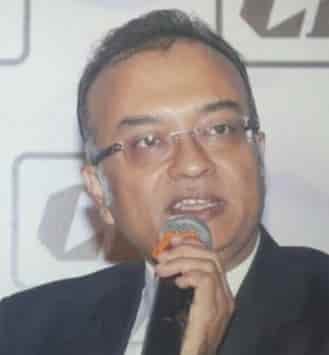
Joydeep K Roy, Partner & Leader – Insurance, PwC India (on the On Sankalp Programme)
“It is heartening to note the 4000 crore budget allotted to train youth for market-oriented skills under Sankalp. Here, an important skill would be providing training on becoming an insurance agent. Not only will this allow youth in rural areas to become employable, but will also increase the penetration of insurance in the country. It is also important to note that agent commissions are no longer subject to deduction of 5% TDS if agents can issue self declaration that their income is below taxable limits. This is especially beneficial for youth from low-income families in rural areas who can gain training to become certified insurance agents – a key to penetrate insurance further into the heart of the country – Life, Home, Health, 2 wheeler / motor, and others.”

Kaushal Dugar, Founder and CEO of Teabox.
“Looking from a macro level, this year’s budget did well for the startup community but there weren’t any drastic announcement for this community. The budget seems more focused on FDI, Housing and digitization and we can expect the Indian startup community to gain, especially when there is more focus on digitizing all processes.”
About Teabox: Founded in 2012, Teabox delivers the freshest, most delicious teas from Darjeeling, Assam, Nilgiri and Nepal to the entire world. By sourcing the highest-quality teas directly from over 200 most capable and most interesting growers and estates, Teabox makes it easy for anyone—from tea experts to complete novices—to experience all the freshness, aroma, flavor, and authenticity fine tea has to offer. Within 4 years of its existence, Teabox has delivered over 40 million cups’ worth of tea to customers in over 100 countries.
India Inc.’s Union Budget 2017 Reactions IV



